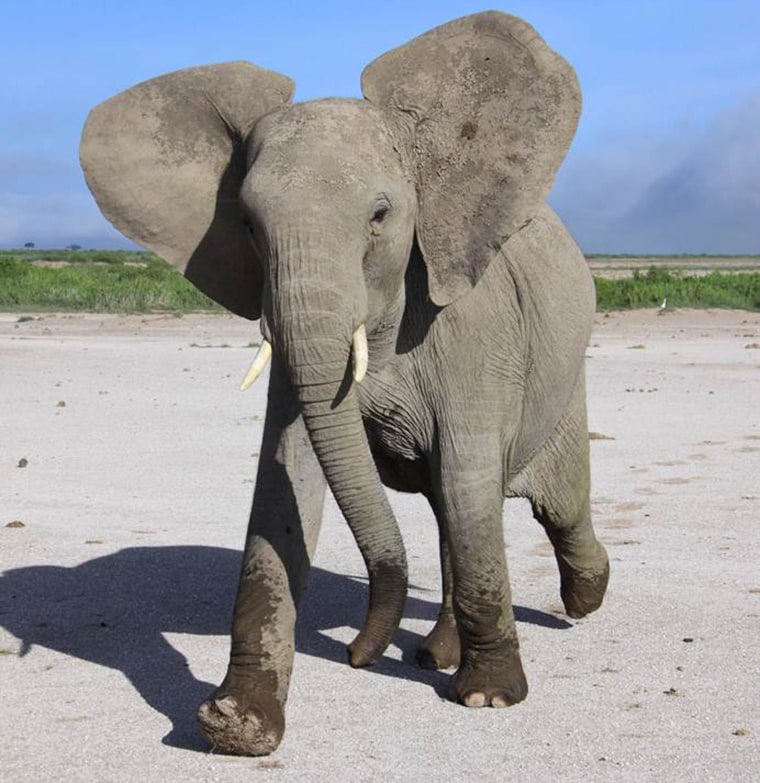Dr. Seuss had it right: Horton really does hear a Who. Wild elephants can distinguish between human languages, and they can tell whether a voice comes from a man, woman or boy, a new study says.
That's what researchers found when they played recordings of people for elephants in Kenya. Scientists say this is an advanced thinking skill that other animals haven't shown. It lets elephants figure out who is a threat and who isn't.
The result shows that while humans are studying elephants, the clever animals are also studying people and drawing on their famed powers of memory, said study author Karen McComb.
"Basically they have developed this very rich knowledge of the humans that they share their habitat with," said McComb , a professor of animal behavior and cognition at the University of Sussex in England. "Memory is key. They must build up that knowledge somehow."

The study was released Monday in the Proceedings of the National Academy of Sciences.
It's close but not quite like the Dr. Seuss book, where the empathetic elephant Horton hears something that others can't hear.
McComb and colleagues went to Amboseli National Park in Kenya, where hundreds of wild elephants live among humans, sometimes coming in conflict over scarce water. The scientists used voice recordings of Maasai men, who on occasion kill elephants in confrontations over grazing for cattle, and Kamba men, who are less of a threat to the elephants. The recordings contained the same phrase in two different languages: "Look over there. A group of elephants is coming."
By about a two-to-one margin, the elephants reacted defensively — retreating and gathering in a bunch — more to the Maasai language recording because it was associated with the more threatening human tribe, said study co-author Graeme Shannon of Colorado State University.
"They are making such a fine-level discrimination using human language skills," Shannon said. "They're able to acquire quite detailed knowledge. The only way of doing this is with an exceptionally large brain."
They repeated the experiment with recordings of Maasai men and women. Since women almost never spear elephants, the animals reacted less to the women's voices. The same thing happened when they substituted young boys' voices.
"Making this kind of fine distinctions in human voice patterns is quite remarkable," said Emory University animal cognition expert Frans de Waal, who was not part of the study.
